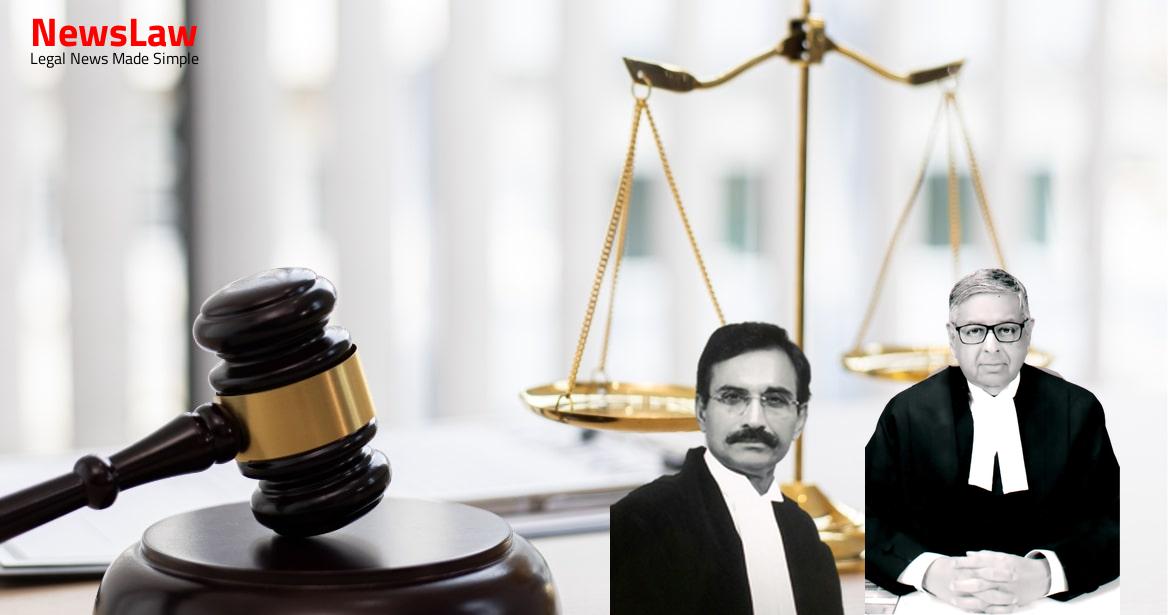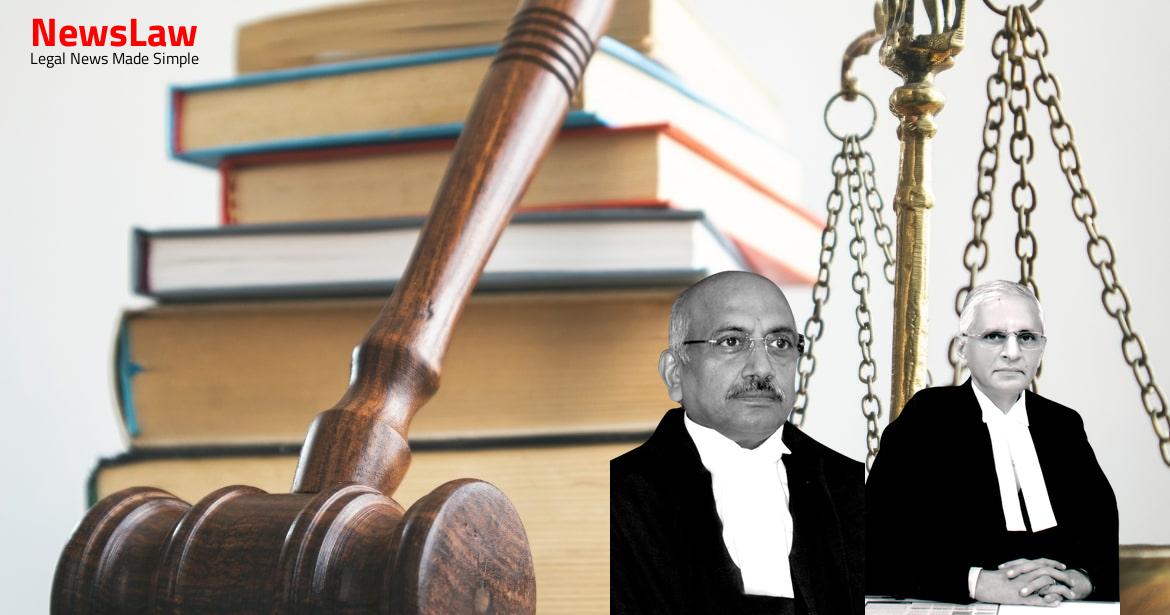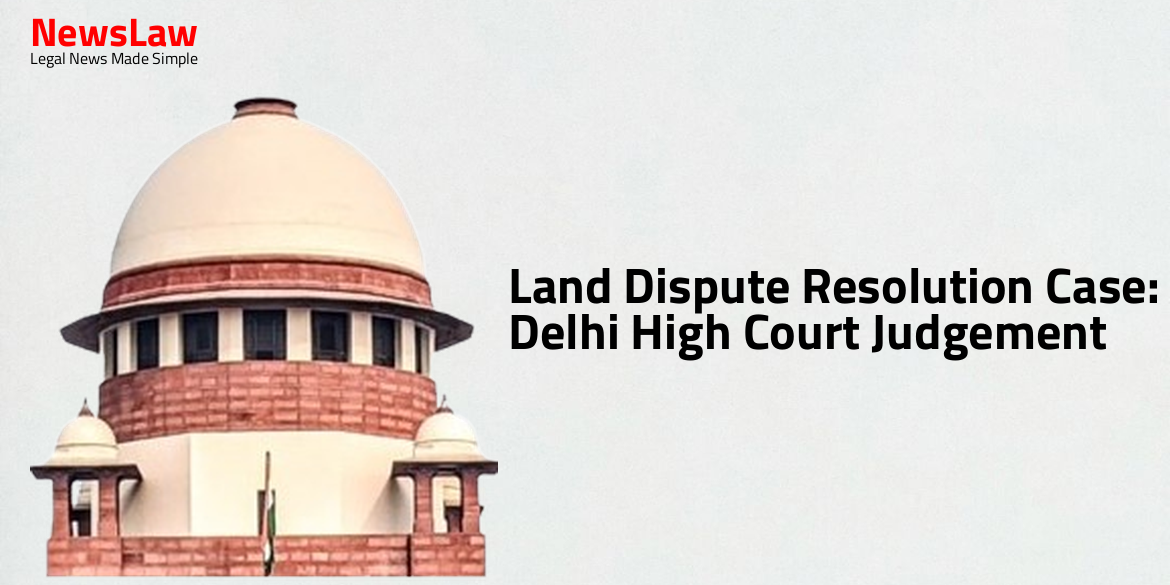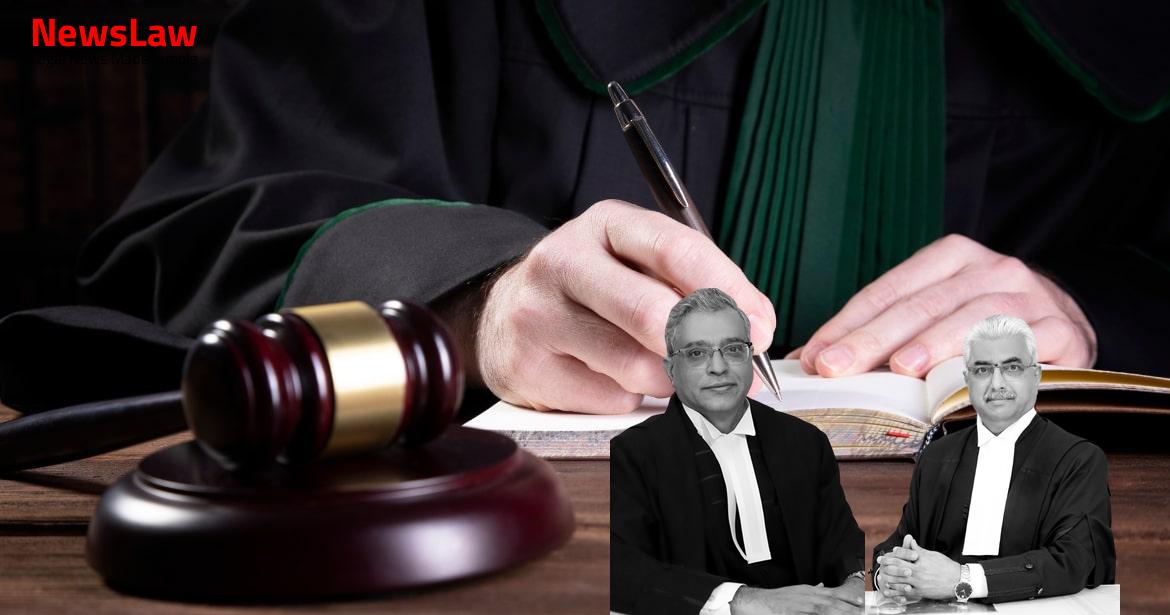The case discussed here delves into the legal analysis by the Court regarding the verification of caste certificates for employment benefits. Emphasizing the importance of strict scrutiny to prevent false claims, the Court’s analysis sheds light on the intricate procedures and guidelines followed in such cases. The aim is to ensure authenticity and integrity in the verification process to safeguard the rights of Scheduled Caste individuals and uphold the principles of transparency and fairness.
Facts
- An order was passed by the District Vigilance Committee cancelling the community certificate of the Appellant on 09.04.2008.
- The Appellant attended the inquiry before the State Level Scrutiny Committee in response to the show-cause notice.
- A community certificate was issued by the Tahsildar, Mylapore-Triplicane, Chennai on 12.07.1985, which the Appellant submitted after joining service on 17.07.1985.
- A complaint was lodged by Dr. Ambedkar Service Association questioning the authenticity of the Appellant’s community certificate used during employment.
- A Writ Petition was filed by the Appellant challenging the cancellation of the community certificate by the Chennai District Vigilance Committee.
- The procedures and functions of District Vigilance Committees and State Vigilance Committees were outlined in a government order.
- The District Collector instructed the Revenue Divisional Officer to conduct an inquiry into the matter.
- Following a remand by the State Level Scrutiny Committee, the District Vigilance Committee was directed to re-evaluate the authenticity of the community certificate.
- The Appellant was promoted as an Assistant Accounts Officer on 31.12.2001.
- The District Vigilance Committee affirmed the Appellant’s belonging to the Valluvan community, a Scheduled Caste.
- A further Writ Petition was filed challenging the legality of the order dated 09.04.2008 before the High Court of Madras.
- The service of the Appellant as a Section Officer was regularized on 27.01.2000.
- The decision of the District Vigilance Committee upholding the Appellant’s claim of belonging to the Valluvan Community on 31.12.1999 remained unchallenged.
- The case was remanded to the District Vigilance Committee for a fresh inquiry.
- The Writ Petition was dismissed by the High Court of Madras on 22.12.2008.
- The appellant filed this Appeal being aggrieved by the dismissal of the Writ Petition.
Also Read: Legal Analysis on Seniority Fixation in Contempt Petitions
Arguments
- District Vigilance Committees were reconstituted by G.O. (Ms) No.111, Adi Dravidar and Tribal Welfare dated 6.7.2005.
- Community certificates which have become final cannot be reopened as held in previous cases.
- Arguments made based on a family settlement memorandum and a sale deed to establish the Appellant’s Scheduled Caste status.
- Reference to G.O. (2D) No.:108 dated 12.09.2007 regarding the dispute over the community certificate.
- Contention that the order dated 09.04.2008 should be set aside due to contradictory evidence recorded by the District Vigilance Committee.
- District Vigilance Committee conducted a detailed inquiry to determine that the Appellant does not belong to a Scheduled Caste.
- Court issued directions in Kumari Madhuri Patil case to prevent false caste certificates being used for securing educational and employment benefits.
- Social status certificate application to be made to designated officers.
- Affidavit with caste details to be filed by parent, guardian, or candidate.
- Verification of caste certificate by Scrutiny Committee to be done at least six months before seeking admission or appointment.
Also Read: Analysis of Authorization and Limitation in Filing Section 7 Application
Analysis
- Kumari Madhuri Patil judgment was referred to
- A Committee of three officers must be constituted for verification of social status certificates.
- The Committee must include an Additional or Joint Secretary, the Director of the relevant department, and an officer with knowledge in verification of social status certificates.
- For Scheduled Tribes, a Research Officer with knowledge in identifying tribes must be included in the Committee.
- If the claim for social status is found to be ‘not genuine’ or ‘doubtful’, a show-cause notice must be issued to the candidate with an opportunity to respond within two weeks.
- If the candidate requests an inquiry, a Committee must convene to provide a reasonable opportunity for the candidate to present evidence.
- A public notice should be published in the village or locality if there are objections to the claim, allowing individuals or associations to adduce evidence.
- The Committee will conduct an inquiry, consider claims and objections, and make a decision with brief reasons in support.
- The entire process aims to ensure the authenticity of social status certificates.
- Repeated inquiries for verification of caste certificates would be detrimental to the members of Scheduled Castes and Scheduled Tribes.
- Reopening of inquiry into caste certificates can be done only if they are vitiated by fraud or issued without proper inquiry.
- Vigilance officers should personally verify and collect all facts related to the social status claimed by the candidate or parent/guardian.
- Orders of the Scrutiny Committee can be challenged in proceedings under Article 226 of the Constitution of India.
- The State Level Scrutiny Committee cannot reopen cases that have become final.
- If the caste claim is found to be false, the certificate should be cancelled and confiscated.
- In case of delay, provisional admissions or appointments can be made subject to the Scrutiny Committee’s inquiry.
- The purpose of verification of caste certificates by Scrutiny Committees is to avoid false and bogus claims.
- The decision of the District Level Vigilance Committee in the year 1999 has not been legally challenged.
- The Guidelines issued in G.O. 108 of 12.09.2007 outline the procedures for verification and cancellation of false caste certificates.
- The High Court should dispose of cases expeditiously within three months.
- The entire scheme for verification of caste status certificates will continue until appropriate legislation is enacted by the concerned legislature.
Also Read: Legal Analysis on Tenure Extension of Director of Enforcement
Case Title: J.CHITRA Vs. DISTRICT COLLECTOR (2021 INSC 437)
Case Number: C.A. No.-005160-005160 / 2010



